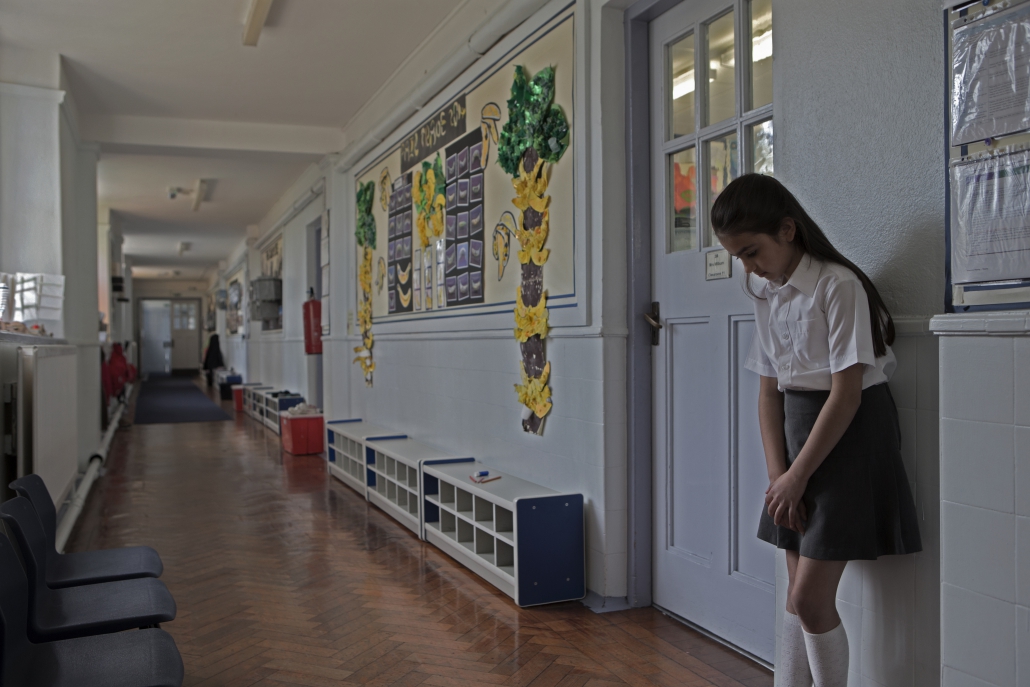The Forgotten Children Scandal – A Review
by Elliot Agro on Mar 12, 2019

The report acknowledges the fact that more and more children are being excluded from school and tries to bring in some solutions pertaining to alternative provisions now being over-subscribed. The full paper is available here: https://publications.parliament.uk/pa/cm201719/cmselect/cmeduc/342/342.pdf, however if you don’t fancy reading 50 pages, here is my break down of the report and what it means for educators and those of us providing interventions.
What is an AP?
For the purpose of this review, an alternative provision (AP) refers to a pupil referral unit (PRU), an AP academy or free school, hospital schools, AP delivered by a charity as well as any independent or unregistered school. Children who are educated at home were not included in this review – although it was mentioned that there are concerns over the number of children who are being inappropriately advised by the school to be home-educated without the proper systems in place. Statutory guidance covers the use of AP. It states that AP can be used by local authorities to arrange education for pupils who are unable to receive suitable education or by schools for pupils who have fixed-term exclusions, but also to ‘improve a pupil’s behaviour.’

Who attends APs?
- Children who have been excluded from school
- Children who cannot attend school due to medical reasons
- Young people who are pregnant and/or caring for children
- Young people who are without placement after leaving a custodial placement
As APs are now often over-subscribed, the difficulty is ensuring that the people whose needs would be best met in an AP are in there, and the people who should be supported in mainstream remain in or are able to return to the mainstream.
Why are APs becoming over-subscribed all of a sudden?
The short answer is – there are more and more children being excluded. There are several reasons for this:
- Off-rolling – this is the process of excluding children before crucial exam periods to ensure the child does not negatively affect the school’s results.
- SEND – there is evidence to suggest that some schools are deliberately not diagnosing children with special educational needs, as this incurs a cost to schools. It is also more difficult to exclude children when they have an identified SEND.
- Some schools are justifying excluding children with SEND by saying they will receive more support in an AP, and exclusion will speed up the assessment process.
- As more is being understood about children’s mental health, more and more children are being recognised as needing support.
- Lack of access to services means schools are not receiving the support they require to help their children with mental health difficulties.
- A rise in ‘zero-tolerance’ behaviour policies means some children are being punished for incidents which should be managed in the mainstream environment.
- Lack of expertise in schools meaning that problems are not identified, and there is a lack of funding for pastoral staff and teaching assistants who could assist children who require support.
- A narrow curriculum affects the engagement of some children with SEMH or SEND needs.
How do children get excluded?
In England, only headteachers can exclude a pupil, which can only be for disciplinary reasons. They must also tell parents of an exclusion, and in some cases, such as permanent exclusions, must inform the governing boards and local authority.
The issues surrounding exclusions are that there is some discrepancy between whether it is the school or the local authorities responsibility to place children or the schools, and in some areas, the decision goes through a fair access panel, where are in others it doesn’t. Parents can appeal when a child is permanently excluded – however they must appeal within 15 school days. Many parents are not aware of this or lack the capacity or time to do so.

What isn’t working?
- Learning Support Units were intended to provide support in a mainstream environment. However, these can often lack consistent and appropriately trained staff meaning the children are unable to form a needed bond with these teachers
- Isolation booths – which are very controversial!
- Mentors are a great way to keep children in school, however, with budget cuts they are often the first to go.
- Quality of teaching – it is difficult to keep the best teachers in AP.
- PRU’s are often stigmatised – people believe only the worst children go there
What makes a good AP?
“A good PRU delivers a lot of love and a little magic into the lives of those who have very frequently, and sadly, experienced too little of either.” – Peterborough Pupil Referral Service (ALT 30)
- Curriculum – Some children said they really appreciated their special classes on how to control their emotions and support their own well being as they felt this helped them.
- School ethos – Children in AP said that they valued the relationship that they have with their teachers. They felt that teachers building relationships with pupils is not possible in mainstream schools. One young person likened their school to a family, while another young person talked about their “school mummy.”
- The most effective APs offer a broad and balanced curriculum that combines academic subjects with vocational options, along with teachers having high expectations for their pupils.
- Many APs provide outreach support to mainstream schools and exclusion support.
- APs should work collaboratively and look for options that enable them to support pupils holistically and provide them with a broad and balanced educational experience.
After AP, in an ideal world many children would reintegrate back into mainstream schools, however, this often does not happen. The reasons for this are:
- It is much harder for children in key stage 4 to reintegrate due to exam pressures from schools.
- In selective local authorities, there are fewer schools who are able to accept children from APs.
- Certain schools refuse to take any children from AP.
- There are no challenges made on the school’s decision to not take children
How can we measure the success of APs?
It is difficult to measure the success of APs, as being compared directly with the mainstream is unfair. The reasons for this are:
- Many children who attended AP would not have got 5 good GCSEs whether they were in AP or stayed in the mainstream.
- For children who are dual registered, their results are counted by their mainstream school.
- Many children arrive at the AP with no evidence of past work, and there may have been many different exam board syllabi studied.
- Although reintegration would be a good measurement of the school’s effectiveness, as discussed previously it is often difficult to find a school to accept the children back into the mainstream.
Post 16
Perhaps one of the most shocking finds from the report is that there is no funded provision for children from AP once they turn 16. Despite the fact, it is now a requirement that young people stay in education until the age of 18!
94% of Year 11 pupils from mainstream or special schools go on to a sustained education or employment or training destination, compared to 57% from AP.

Unfortunately, pupils from AP can face limited choices about where they can go on to based on the qualifications they achieved at AP, or their educational histories. It is also very difficult for them to go from a small PRU where they received a lot of support to a huge college, and so they often drop out.
Conclusions & recommendations
Although it can look pretty bleak, at least the Government are aware of the difficulties facing both mainstream and alternative provisions and can look to rectify some of the issues.
- One of the main recommendations was around progress 8. ‘The Government should change the weighting of Progress 8 and other accountability measures to take account of every pupil who had spent time at a school, in proportion to the amount of time they spent there. This should be done alongside reform of Progress 8 measures to take account of outliers and to incentivise inclusivity.’ This would aim to avoid off-rolling and ensure schools are being measured more effectively.
- Independent Review panels will now be able to direct a school to reinstate a pupil should they feel this is appropriate. This seems a good step to stop schools from refusing to take back pupils and not being held accountable for this
- Parents will get access to an independent advocate when their child has been excluded for more than 5 non-consecutive days to ensure they know their rights and can appeal.
- Pupil Referral Units should be renamed – the Government plans to consult young people and people working in PRUs to find some new terminology. This should help to reduce the stigma
- Schools should publish their permanent and fixed term exclusion rates by year group every term, including providing information about pupils with SEND and LAC. Schools should also publish data on the number of pupils who have left school. This will make finding out which schools are excluding a lot of pupils easier and make the system more transparent
- In order to achieve Qualified Teacher Status, trainee teachers should be made to do a placement outside of a mainstream provision, such as an AP or special school. This will hopefully not only provide the trainee with specialist training but also encourage more new teachers to work in alternative provisions
- All mainstream schools should be ‘buddied’ with alternative provisions so they can share training and to encourage mainstream to reintegrate pupils
- The Government must allocate some funding so that the LA can provide some post-16 provisions for AP pupils.
So there you have it – the Government has come to some sensible conclusions, but whether they will come to fruition, only time will tell.
- General mental health (35)
- General Speech & Language (32)
- School Issues (26)
- Counselling (24)
- Primary Schools (24)
- Classroom Behaviour (23)
- Anxiety (22)
- Speech and Language Therapy (22)
- Absenteeism (20)
- SENCOs (20)
- Safeguarding (17)
- Secondary & Sixth Form Schools (16)
- Social Communication (16)
- Funding (14)
- MATs (14)
- Generalised anxiety (13)
- Autism Support (10)
- Language Delay/Disorder (10)
- Relationship Issues (10)
- SEMH (10)
- ADHD Support (7)
- Speech Sounds (7)
- AAC (6)
- Autism (5)
- Hearing Impairment (5)
- Depression (4)
- Selective Mutism (4)
- Anger (3)
- Cleft Lip/Palate (3)
- Downs Syndrome (2)
- Ofsted (2)
- Phobias (2)
- Stammering (2)
- Loss (1)
- Self-Harm (1)
- Suicidal Thoughts (1)
You may also like
These related stories

Everything you Need to Know about Oracy and Dialogic Teaching

Supporting communication in children with behavioural difficulties

